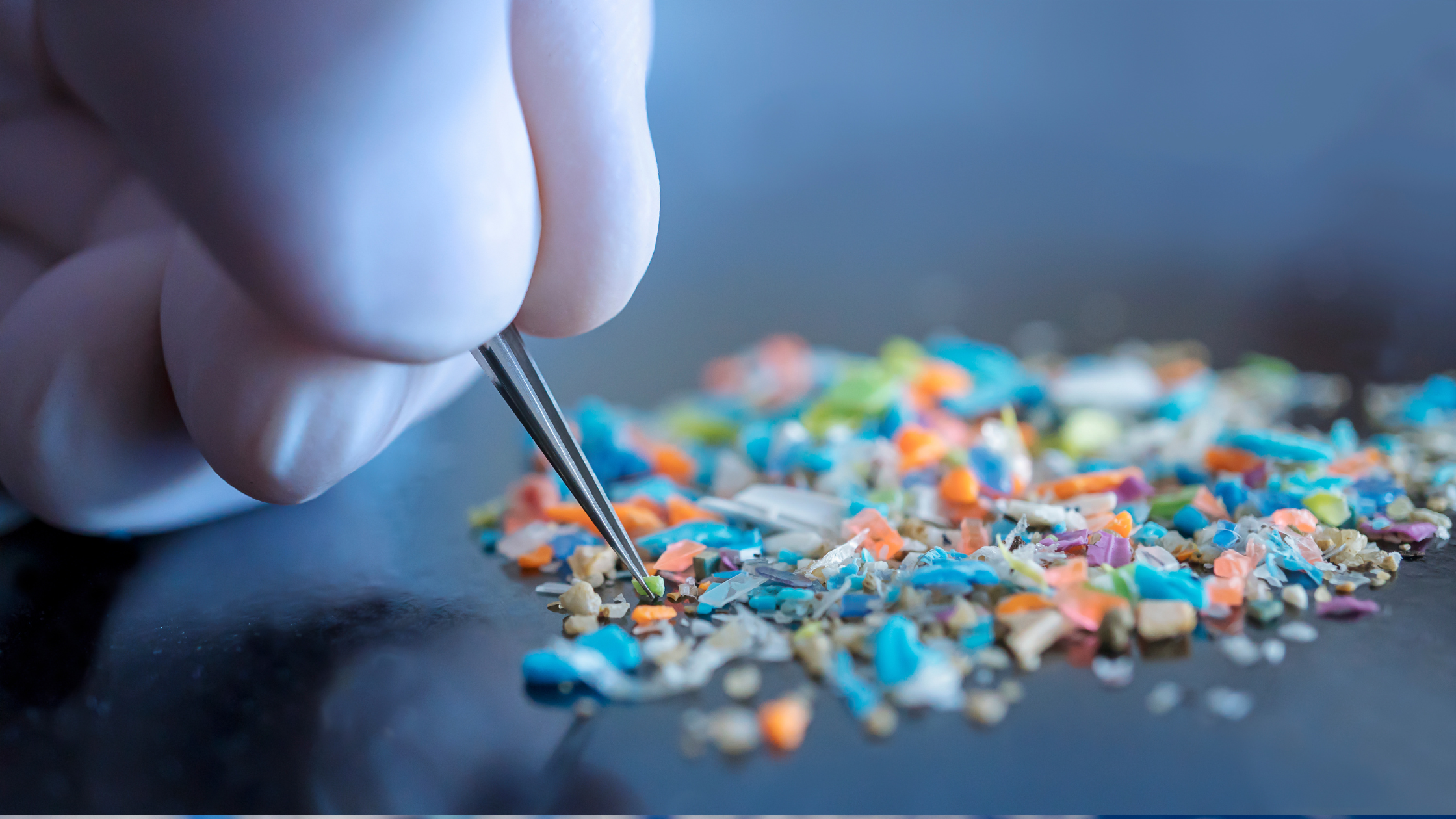Study Finds Microplastics in Every Human Testicle Examined
Recent study shows microplastics were found in all human testicles. Scientists believe this discovery could be connected to the decades-long drop in sperm counts in men worldwide.
Study Finds Microplastics in Every Human Testicle Examined
Microplastics are tiny plastic particles that are less than 5 millimeters in size. They originate from various sources, including the breakdown of larger plastic debris, microbeads in personal care products, synthetic fibers from clothing, and industrial processes. These particles are small enough to be ingested by marine life and humans, leading to widespread environmental and health concerns. Microplastics can be found in oceans, rivers, soil, and even the air we breathe, making them a significant pollutant in the modern world.
A new study by Toxicological Sciences found microplastics in all canine and human testes examined, with significant differences between individuals. The study measured 12 types of microplastics in 47 canine and 23 human testes. The average total microplastic level in human testes was 328.44 µg/g.₁
These findings highlight the widespread presence of microplastics in the male reproductive system of both canine and humans, potentially affecting male fertility. Scientists believe this discovery could be connected to the decades-long decline in sperm counts in men worldwide. The prevalence of microplastics has raised concerns about their possible effects on the human reproductive system.
Sperm counts in men have been decreasing for decades, with many studies linking this to chemical pollution like pesticides. While the health impact is still unknown, lab studies have shown that microplastics can damage human cells in the laboratory.
It can be nearly impossible to avoid microplastics because, as mentioned, they can be found even in the air we breathe, but there are some steps you can take to reduce your exposure. Here are several strategies aimed at minimizing exposure and mitigating contamination sources. Here are some steps you can take to reduce exposure to microplastics and protect male fertility and sperm health:
1. Filter Tap Water: Use water filters that can remove microplastics from drinking water, such as those with activated carbon or reverse osmosis (RO) systems.
2. Avoid Single-Use Plastics: Reduce the use of plastic bottles, bags, straws, and other single-use items. Opt for reusable alternatives made from glass, metal, or other sustainable materials.
3. Choose Natural Fibers: Wear clothing made from natural fibers like cotton, wool, and hemp instead of synthetic materials like polyester and nylon, which shed microplastics during washing.
4. Avoid Products with Microbeads: Check labels and avoid personal care products that contain microbeads, which are tiny plastic particles often found in exfoliants and toothpaste.
5. Use a Microfiber Filter: Install a microfiber filter in your washing machine to capture microplastics shed from synthetic fabrics during washing.
6. Eat Less Processed Food: Processed foods can be a source of microplastic contamination, so opting for fresh, whole foods can reduce intake.
7. Stay Informed: Keep updated on research and recommendations regarding microplastics and make informed choices based on the latest information.
By adopting these practices, you can help reduce the amount of microplastics entering your body and contribute to broader efforts to tackle plastic pollution. Healthy male fertility ensures that individuals and couples can achieve pregnancy, reducing the need for medical interventions. Moreover, maintaining fertility is often an indicator of overall health. To stay proactive about fertility, men should adopt a healthy lifestyle that includes a balanced diet, regular exercise, and avoiding harmful substances. Regular medical check-ups can help detect and address potential fertility issues early. Additionally, reducing exposure to environmental toxins, such as microplastics and pesticides, can protect reproductive health. Managing stress and maintaining a healthy weight are also important, as both can significantly impact sperm quality. By taking these steps, men can safeguard their fertility and contribute to their overall health.
References:
Hu, C. J., Garcia, M. A., Nihart, A., Liu, R., Yin, L., Adolphi, N., Gallego, D. F., Kang, H., Campen, M. J., & Yu, X. (2024). Microplastic presence in dog and human testis and its potential association with sperm count and weights of testis and epididymis. Toxicological Sciences. https://doi.org/10.1093/toxsci/kfae060
Medical Disclaimer: The information provided in this blog is intended for general informational purposes only and should not be considered as a substitute for professional medical advice, diagnosis, or treatment. Always seek the advice of your healthcare provider or qualified medical professional with any questions you may have regarding a medical condition. Never disregard professional medical advice or delay in seeking it because of something you have read in this blog.


